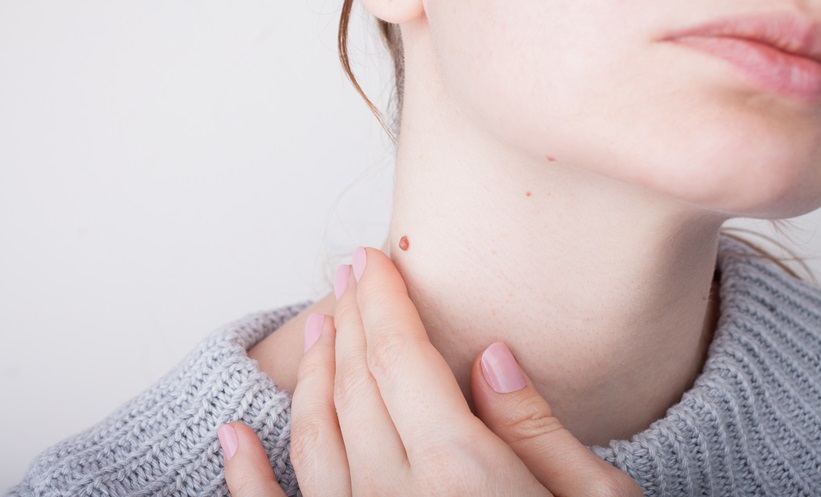IN PATIENTS with primary thyroid cancer, there is an increased risk of melanoma and other non-keratinocyte skin cancers after radioactive iodine therapy, particularly in the head and neck region.
Prior research has suggested a link between papillary thyroid cancer and melanoma through shared genetic mutations. However, the relationship between melanoma and ionizing radiation exposure is not well-established. This study aimed to quantify the risk of subsequent skin cancer, particularly nonkeratinocyte types, in patients with thyroid cancer treated with radioactive iodine.
Using population-based data from the U.S. SEER Program, researchers analysed 174,916 patients diagnosed with thyroid cancer between 2000 and 2019, with follow-up through 2020. Of these, 79,576 (45.5%) patients received some form of radiation treatment. Standardised incidence ratios (SIRs) were calculated to determine the risk of developing subsequent skin cancers, adjusting for factors such as sex, race, age, and year of diagnosis. The analysis excluded keratinocyte skin cancers and focused on melanoma and other nonkeratinocyte skin cancers. The results showed that following thyroid cancer, 865 patients were diagnosed nonkeratinocyte skin cancers, 790 of which were melanomas. Of those, 171 (19.8%) were located on the skin of the head or neck. When researchers limited the cancer site to the head and neck, the SIRs were higher than expected for all nonkeratinocyte skin cancers (SIR: 1.64; 95% CI: 1.32-2.02), melanoma (SIR: 1.56; 95% CI: 1.22-1.97) and other nonkeratinocyte skin cancers (SIR: 2.07; 95% CI: 1.23-3.27).
The results of the study demonstrate the potential long-term risks of radioactive iodine therapy, particularly in relation to skin cancer development. Clinicians should consider regular skin cancer screenings for patients who have undergone this therapy, particularly those with papillary thyroid cancer, which showed the highest associated risk.
Katrina Thornber, EMJ
Reference
Rezaei SJ et al. Development of melanoma and other nonkeratinocyte skin cancers after thyroid cancer radiation. JAMA Netw Open. 2024;7(9):e2434841.








